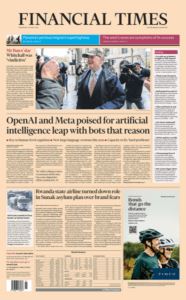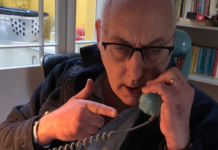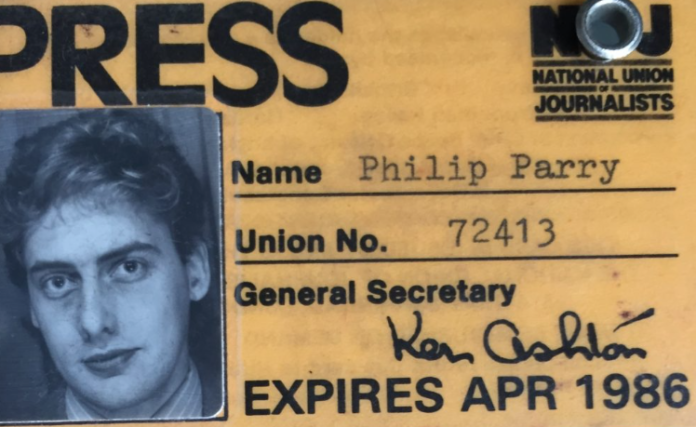- Democratic deficit - 2nd July 2025
- Crime pays - 1st July 2025
- Disabling protests - 30th June 2025

The latest figures show again a huge upsurge in Artificial Intelligence (AI), but this presents a challenge for our Editor Welshman Phil Parry.
I am nervous.
I have always prided myself on being up on new technology, and have embraced the changes, from writing stories on a typewriter (scripts for television items were done that way as well), to a computer, then on social media posts.
When I started in journalism on what was then the biggest selling paper produced in Wales (the South Wales Echo [SWE]), I used to have to look for a house with a telephone wire, then knock on the door to ask if I could use the phone on a transfer charge basis, so that I could file my copy when I was in the field. The benefits of mobile phones when you are covering a story, are tremendous!
Now key words can be reproduced by a machine, so that passable articles may be produced. There is no doubt that AI is the future, and everyone is talking about it. 
In America, the market size is projected to reach $305.90 billion this year, with an annual growth rate of 15.83 percent, so that it will be $738.80 billion by 2030.
 One consultancy there puts it bluntly. According to Next Move Strategy Consulting the market value for AI is expected to grow twentyfold by 2030, up to nearly two trillion US dollars.
One consultancy there puts it bluntly. According to Next Move Strategy Consulting the market value for AI is expected to grow twentyfold by 2030, up to nearly two trillion US dollars.
With the influx of consumer generative AI programmes like Google’s Bard and OpenAI’s ChatGPT, the market is poised to explode, growing to $1.3 trillion over the next 10 years from just $40 billion in 2022.

It is not just the world of journalism either which could be transformed, but health care too. Research and Markets, a firm of analysts, estimates that in 2023 the health care world spent about $13 billion on AI-related hardware (such as specialised processing chips and devices that include them), as well as on software providing diagnostics, image analysis, remote monitoring of patients and more, with it seeing that number reaching $47 billion by 2028.
 The world has been dazzled by ‘foundation models’ like, Meta’s Llama and Gemini from Google. We are just at the start of all this.
The world has been dazzled by ‘foundation models’ like, Meta’s Llama and Gemini from Google. We are just at the start of all this.
For doctors and others the changes may be enormously positive, but for journalists like me I’m not so sure and I remain cautious.
The good thing is that I doubt I will ever have to go back to knocking on people’s doors and asking if I can use their phone!

The memories of Phil’s decades-long award-winning career in journalism (including some of the unlikely situations he has been in as a reporter) as he was gripped by the rare disabling condition Hereditary Spastic Paraplegia (HSP), have been released in a major book ‘A GOOD STORY’. Order it now! Regrettably publication of another book, however, was refused, because it was to have included names.

Tomorrow – how disturbing revelations in the news today that the widow of a man who took his own life in the enormous Post Office (PO) scandal has yet to receive any payout, again shines the spotlight on the huge role of Wales in the controversy.










